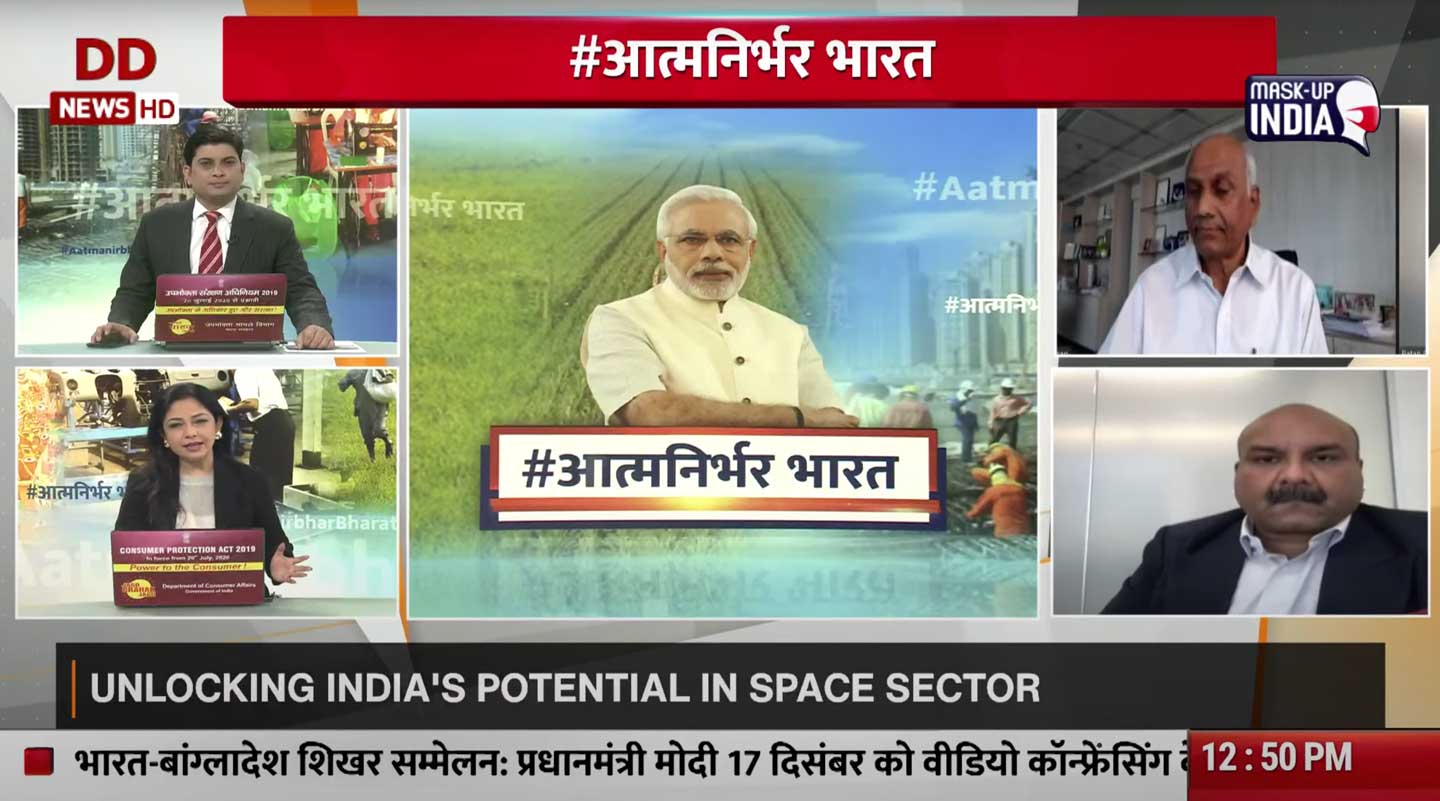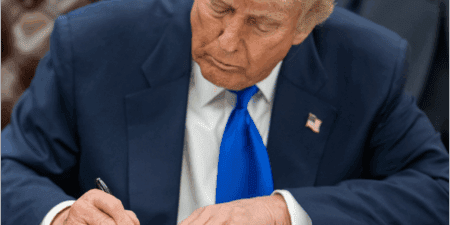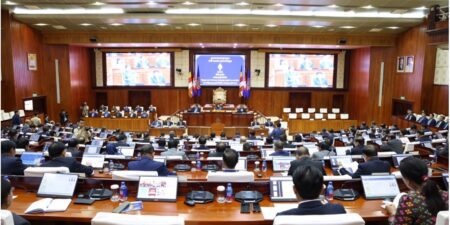On December 15, BGA Managing Director India Ratan Shrivastava (pictured on the bottom right above) participated in a discussion on unlocking India’s potential in the space sector. The conversation, hosted by one of India’s largest broadcasting organizations, featured a conversation that followed an appearance and remarks by the head of India’s space agency.
The discussion, hosted by public service broadcaster Doordarshan (DD) and focused on the theme “Unlocking India’s Potential in Space,” featured remarks by K. Sivan, chairman of the Indian Space and Research Organization (ISRO), along with a discussion that followed with comments by Shrivastava as well as Subba Rao Pavuluri, CMD Ananth Technologies Ltd. It touches on various issues across the Indian space sector, including integrating this with broader national development priorities, fostering public awareness, increasing talent and building relationships with the private sector and academic institutions.
During the discussion, Shrivastava, a recognized space expert who has decades of experience on defense issues both in the Indian Army as well as in the private sector, shared his insights on navigating the opportunities and challenges in India’s space industry and the roles of various domestic and international actors in advancing government priorities. In his remarks, Shrivastava hit on several important themes, including the private sector’s ability to help widen the size of India’s space sector and realize Prime Minister Narendra Modi’s declared objective of ensuring that the benefits of outer space investments reach the common man.
Beyond the relationships among various players, Shrivastava also focused more specifically on the role of talent and fostering “space awareness” in younger generations. While ISRO and other institutions do have some initiatives in place directed at this, he said there needed to be a broader inculcation of a sense of outer space at a young age to “nurture the next generation of space technologists,” where schools will have an important role to play across all levels and whether they are government or private. He noted that institutions such as the Indian Institute of Space Science and Technology in Trivandrum play an important role not only in building talent, but also encouraging international cooperation if individuals are able to link up with like-minded individuals in other countries such as Germany, France, the United States and Japan.
More generally, Shrivastava noted that the understanding of outer space in the people of India would need to be both broadened and deepened, focusing not only on specific manifestations such as rockets and satellites but also applications involving software and the integration of technologies such as remote sensing. This broader sense of space awareness, in his view, would both be a more complete representation of reality as well as a more interconnected, whole of India perspective that would recognize the connections between the government, private sector, non-governmental organizations and wider society.


























